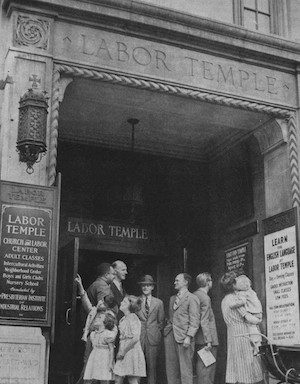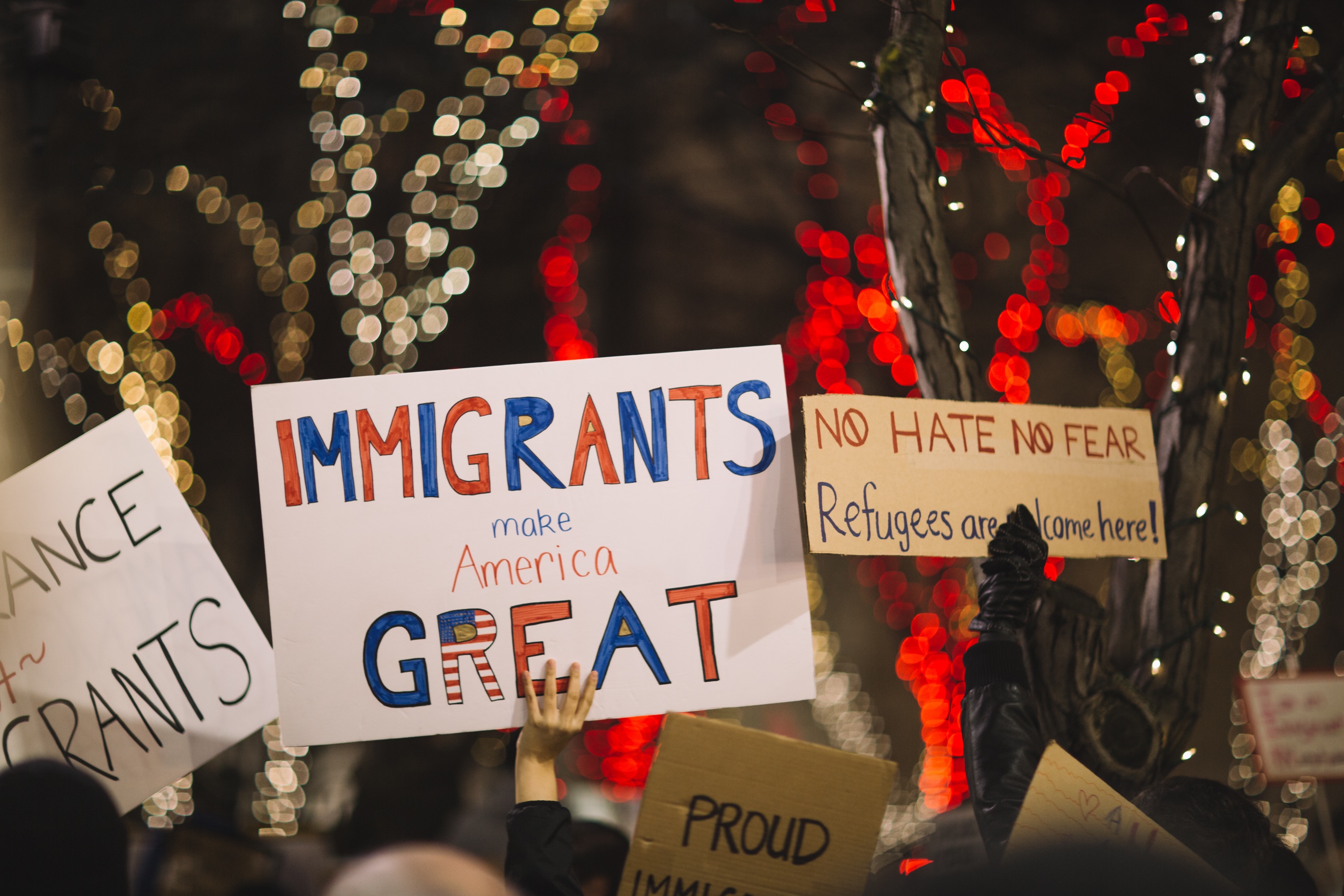Resisting the Creed of Greed (Part I)
This piece largely treats the House and Senate versions of GOP tax redistribution as one “vision”. Click HERE for a breakdown of the House and Senate version differences as of mid-November.[1]
At publication, each bill has passed its respective house—only the reconciliation process stands in the way of this flawed vision of tax justice.

A fantasy of “trickle-down” economic growth fails to obscure the reality that the Administration’s tax plan almost exclusively favors the rich.
When individual wealth accumulation is seen as the highest good, the claims of the larger community represented by taxation shrink. Despite the recent example of Kansas, where dramatic tax reduction meant little growth and cratered services, forcing state legislators (majority Republican) to restore taxes over their true-believer Governor’s veto, the zombie argument that massive tax cuts stimulate massive growth is being trotted out once again—by people who opposed all Obama stimulus programs as “increasing the deficit.”[2]
After its tax cuts, Kansas did worse than before, and also worse than neighboring states, in terms of job growth, population growth, and growth in disposable income. But that is no surprise—many readers will know that “supply-side” economics does not work well. The goal seems really to be the tax cuts in themselves, regardless of what they do to our country’s future, as long as they go into super-rich pockets.
This article looks first at the modern “Creed of Greed,” a mentality which has made the United States a land of limited opportunity for most U.S. citizens. We then turn to the current Administration’s proposed tax policies, which can only weaken democracy and strengthen the American class system. In line with Unbound’s current theme of Honest Patriotism, we ask whether these tax policies are the opposite of patriotism—a betrayal of the hopes and interests of most US citizens. If the massive tax redistributions hurt most taxpayers, weaken our country, including its national security, and degrade the biosphere for future generations, are they not the opposite of rule by the people?
We also argue for an economic nationalism without xenophobia. Though we are critical of tax-avoidant corporations, some corporations may play a constructive role in the tax debate. As Pete Peterson, a true believer in deficit reduction, puts it, “True business patriots need to advocate for their country as well as their company.”[3]
___________________________________________
The Ryan/Trump tax plan is not simply about “limited government,” but rather about limited respect for government as the shared enterprise of the American people.
___________________________________________
In a second piece, we will contrast the Presbyterian Church’s Tax Justice policy, adopted by its General Assembly in 2014, with the current administration’s tax cuts for the 1%. The Administration’s plan is largely embodied in the measure approved by the House of Representatives, which has been analyzed by the Joint Committee on Taxation (See HERE), although the Senate is adding and subtracting elements to keep the bill’s net cost under $1.5 trillion. [4]
The Creed of Greed
The Ryan/Trump tax plan is not simply about “limited government,” but rather about limited respect for government as the shared enterprise of the American people. It reflects a vision of the American Dream as all about material success, with the natural riches of our land to be exploited by the most powerful. Their plan is not only targeted to benefit wealthy individuals, but also encourages the kind of inherited, dynastic wealth that would accelerate the inequalities already rampant in the US economic system. For example, the plan ends the inheritance tax, which affects only the very wealthiest families. No person need fear a tax on the inherited wealth exceeding $10.9 million! (This is the amount a married couple can deduct from the taxable inheritance, if they have not set up tax avoidant trusts and other wealth-management end-runs around the tax code).
This is not simply about limited government but about limited respect for government as the shared enterprise of the American people. It reflects a vision of the USA as that “land of opportunity,” a place where the American Dream is all about material success, and the natural riches of our land are to be exploited by the most powerful. The anti-tax pledge itself is a kind of Creed, along the lines of “private profit will lead to greater investment and hence more job creation than public investment in such things as education and infrastructure.” In extreme forms, the Creed of Greed argues for privatizing public utilities and enterprises, policies forced on countries like Greece and politically weak places like Puerto Rico to pay for suspiciously acquired debts.
The biggest winners of the proposed “reform” are corporations (which are currently flush in profits) and the wealthiest 0.1% of citizens. If the surcharge on the wealthiest US Americans to help pay for Obamacare is added to the cuts (as currently), then the tax cuts for the most wealthy directly endanger the healthcare of 13-23 million poor citizens who cannot afford insurance in our inadequate healthcare system. The comedian Jimmy Kimmel, recognizing the stakes, has recently become known for making the preservation of healthcare subsidies a “test” for a moral obligation to protect children with disabilities in particular.[5]
Kimmel, and Unbound, subscribe to another vision of the American Dream, one in which the United States is a beacon of hope, a place where government serves “the common welfare,” where there is a democratic basis for “life, liberty, and the pursuit of happiness.” This is the vision of the country as a “new world,” uncorrupt and generous, the shining “city on a hill” imaged in scripture; this is the dream for which, as written in the Mayflower Compact, “we must be willing to abridge ourselves of our superfluities, for the supply of other’s necessities.”
___________________________________________
Churches and other religious bodies have historically supported the second, more communal vision. The ideas that individuals do not live for themselves alone, that each person is created to be part of a community, that the members of a larger body can be equally valued, and that one bears one another’s burdens to maintain that community—these are ideas reflected in the phrase, “one nation, under God.”
___________________________________________
This vision is the basis of the progressive income tax, whereby those with greater capacity carry greater burdens—they pay higher rates—just as they derive greater benefits from the social order that has been built up over generations. And it turns out—to judge from the US experience of the New Deal in the 20th Century—that a more democratic economy is also a more productive one. This is to maintain not only that demand-side stimulus, like direct jobs or infrastructure spending, can grow the economy when people are out of work (Keynesianism), but that longer-term public investments, particularly in good schools and transportation systems, make our workers more productive and our technology more efficient, in turn creating more demand and innovation.
Churches and other religious bodies have historically supported the second, more communal vision. The ideas that individuals do not live for themselves alone, that each person is created to be part of a community, that the members of a larger body can be equally valued, and that one bears one another’s burdens to maintain that community—these are ideas reflected in the phrase, “one nation, under God.” We do not elevate individuals to supreme power; our leaders are to be servants of the public. (No one is compelled to believe in a supreme being, of course, but it is an impractical atheism that reduces the purpose of our citizenship to getting rich.) It is a violation of the common good by the most powerful when they cannot distinguish the public interest from their private interests.
Today the United States is one of the least-taxed and most unequal countries in the developed world. The percentage of taxes paid by corporations has been going steadily down. When payroll taxes are included, the middle class pays a higher income tax rate than the rich, and with more modest homes, has much less mortgage interest to deduct. Overall we have a highly regressive or “rigged” tax system. One place to find this data is the Presbyterian Church (U.S.A.)’s report Tax Justice: A Christian Response to a new Gilded Age.[6]
For much of our country’s history we were a much more equal country with greater economic and social mobility, a solid public education system (segregated areas excepted) and greater productivity. Tax rates on the rich were much higher, CEOs made only 20-30 times what workers made, and one income could support a nuclear family, with adequate time for family life and insurance for good health care. This kind of society still exists in the developed countries of Europe, Japan, and several other places, as is shown in Michael Moore’s 2016 film, Where to Invade Next. They do pay for more humane societies through higher tax rates, but their public services are better, college is broadly affordable, and their people rank higher than Americans in most social and health indicators, from infant mortality to life expectancy. Put another way, their social achievements for most citizens are basically as good as those only our wealthier citizens can buy.
The recent Paradise Papers and earlier Panama Papers help us understand that most international corporations based in the US (and many wealthy US citizens) are not innocents, but shift their profits and wealth abroad into tax havens. Some of this is illegal tax evasion, but a lot is legal tax avoidance. Transfer pricing—when one branch of a firm pays another branch some arbitrary wedge of profit to hide in a secret, low-to-no-tax jurisdiction—erodes our tax base, especially when corporations play off countries into a “race to the bottom” of tax holidays and enterprise zones. The vast majority of US citizens are far from the only victims; indeed, we have more in common with the kleptocracies of Latin America and Africa than we want to admit.
___________________________________________
Corporations benefit from the society we have built up for several hundred years, and from a civilization of a few thousand years, but they don’t pay back.
___________________________________________
Even respected corporations like Microsoft, Facebook, GE, plus big banks and brokerages, generally abuse or exploit the tax laws to avoid paying taxes. In other words, they benefit from the society we have built up for several hundred years, and from a civilization of a few thousand years, but they don’t pay back. Sure, maybe a spectacularly rich Bill Gates may then sponsor a charity to help compensate for these devastating inequalities, but the primary business plan creates those inequalities—and distorts our political system from the goal of fairness. Apple is perhaps the biggest tax dodger, with at least $128 Billion parked on the tax haven channel island of Jersey.[7]
It is a mistake to look at any of the 80 or so secrecy jurisdictions or tax havens as a separate entity, or indeed to see them in geographic terms. The money hidden behind the nameplate in the Cayman Islands is operating on Wall Street as fully as your publicly accountable pension fund. In fact, many of our big universities also hide their investments via “blocker corporations” that conceal the names of the actual investors. Tax analyst and attorney James Henry describes how trillions in private wealth are hidden:
“…most of this wealth, secreted by way of an opaque network of shell companies, trusts, foundations, and nominee owners, belongs to at most the top 0.1% of people on the planet. Much of it is derived from tax dodging, money laundering, kleptocracy, bribery and other criminal enterprises. It has been carefully recruited, hidden away, and tenderly cared for by a mercenary army of more than 200,000 well-paid professionals—private bankers, asset managers, accountants, lawyers, trustees, hedge fund managers, high-end real estate brokers, and corporate registrars—that constitutes the global tax haven industry.”[8]
What has fueled the growth of this massive shadow economy—estimates range over $23-36 trillion—is ideology, not just greed alone. The acceptance of the idea of “tax competition” among civil jurisdictions gives corporations great advantages against governments, citizens, and workers, especially in smaller countries, perhaps dependent on only one or two export products. Yes, globalization has been the mechanism of capital flight, but it is de-regulation and impunity for large financial actors (such as fraud in mortgages leading to the 2008 credit crunch) that have allowed so many corporations and wealthy individuals to truly become “citizens of nowhere.” All of this siphoning-off of profits—hidden or merely “parked” overseas until a discount repatriation can be put through as a tax cut—hurts governments (both individually and jointly) and hinders them from addressing massive green development, public health and education needs. Nor did the 2004 tax holiday lead to a surge in corporate investment. The public should know that the chief architects of the Administration’s tax cuts are deeply involved with the tax haven industry. [9]
The current tax plan contains many proposals that would weaken the capacity of government to do jobs most citizens believe are necessary, and it would increase inequality in the US, which is already at almost medieval levels, as between royalty and peasantry. Revenue-neutral proposals often assume the same basket of government services and programs, but all tax policy has moral dimensions and should—to most religious observers—address the inequality issue.
Why increase the national debt drastically for a tax cut for the wealthiest taxpayers, who own much of corporate America and benefit most from public debt interest payments? If the proposed tax cuts eliminate the deductibility of state and local taxes—which are much higher in California and New York—there is a clear political impact on the majority of the electorate that voted for Hillary Clinton, and a defining down of what services and public goods government should provide. As with Obamacare, the goal seems to be to cause government to fail.
___________________________________________
Is this not a form of economic treason?
___________________________________________
The good intention of reducing the export of jobs is not meaningfully addressed simply by reducing the statutory tax rate to 20%, as that rate will drive down corporate taxes around the world and there is no crack-down on tax havens or increase in disclosure rules in the tax cut legislation—indeed, the IRS will likely remain hamstrung in many areas, leaving billions “on the table” (or under it).
If patriotism is love of country, and corporate “tax management” and “regulatory mining” are already designed to deny resources to one’s own government, shifting much burden to the middle class and working poor, are not the lobbyists and politicians favoring further official tax cuts on the rich and corporations betraying the majority of their fellow citizens? Will extravagant tax cuts not stifle creative public investment and leave our country weaker and in more debt, to no social benefit? This is not about China or Mexico being bad guys, it is about spiking our own regulatory guns, and allowing our society to be more divided. Is this not a form of economic treason?
[See Part II for a fairer approach to economic justice]
*****
AUTHOR BIO: General Editor Chris Iosso has been ordained (Elizabeth Presbytery in NJ), inducted into General Assembly Mission Council service in NYC, and educated (Johns Hopkins—BA, Princeton—MDiv, and Union (NY)—PhD, Seminaries) in the print dispensation. After serving as a pastor and parent of three in Westchester County, NY, he returned to the PMA as Coordinator of the Advisory Committee for Social Witness Policy. He is married to chaplain Robin Hogle. Beyond books, he enjoys running, kayaking and soccer.
[1]Taylor, Andrew and Marcy Gordon. “Major differences in House, Senate tax proposals.”The Associated Press, 11/11/2017. https://apnews.com/18ec0c470a064a5a91687e7165b48eb5.
[2]Linden, Michael. “Kansas’ experiment with tax cutting failed spectacularly — on its own terms”. The Business Insider, 6/14/2017. http://www.businessinsider.com/kansas-experiment-with-tax-cutting-failed-on-its-own-terms-2017-6/.
[3] Peterson, Pete. NYT, 11/21/17, p. B6.
[4] The Joint Committee on Taxation. “Distribution Effects Of The Chairman’s Modification To The Chairman’s Mark Of The “Tax Cuts And Jobs Act,” Scheduled For Markup By The Committee On Finance On November 15, 2017.” https://www.jct.gov/publications.html?func=startdown&id=5040.
[5] Mascaro, Lisa. “Comedian skewers Republican Graham-Cassidy healthcare bill as failing to pass the ‘Jimmy Kimmel test’ “. Los Angeles Times. http://www.latimes.com/politics/washington/la-na-essential-washington-updates-comedian-skewers-republican-1505925598-htmlstory.html
[6] Presbyterian Church (U.S.A.). Tax Justice: A Christian Response to a new Gilded Age. 2014. http://www.pcusa.org/site_media/media/uploads/acswp/pdf/acswp_tax_justice._42.pdf
[7] Drucker, Jesse & Simon Bowers. “After a Tax Crackdown, Apple
Found a New Shelter for Its Profits.” NYT, 11/6/2017.
[8] Henry, James S. “Let’s Tax Anonymous Wealth!”. In Thomas Pogge and Krishen Mehta, eds. Global Tax Fairness (Oxford, 2016), pp. 31-32.
[9] McLean, Danielle. “GOP tax-reform writers benefited from offshore holdings.” ThinkProgress, 11/5/2017. https://thinkprogress.org/gop-tax-reform-offshore-holdings-aae3b60f62ec/






Unbound Social